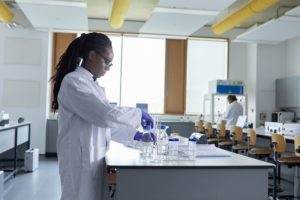Senior Lecturer in Human Nutrition
Faculty of Health, Education and Society
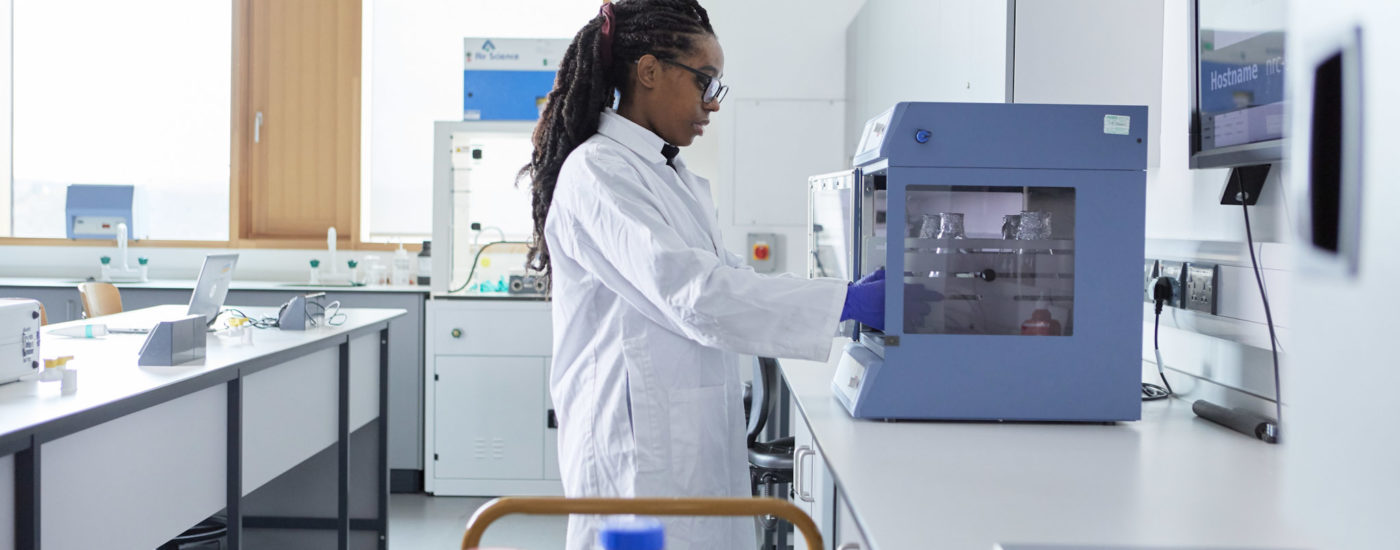
Pharmacology BSc (Hons)
- Home
- Courses by subject
- Pharmacology BSc (Hons)
Key Facts
-
UCAS Code
BSc: B210
BSc with Foundation: B211 -
Level
UndergraduateUG BSc (Hons)
-
Duration
Full Time: 3 years
Full Time Foundation: 4 years
Part Time: 4 - 6 years -
Starting
September
-
BCC at A Level or,
DMM at BTEC Extended Diploma
GCSE Maths and English Language at Grade C/4 or above or equivalent -
Full Time: £9,535
Part Time: £1,585 (per 20 credits)
Integrated Foundation Year: £9,535 -
Full Time: £15,700
Integrated Foundation Year: £15,700 -
Waterside
Updated 27/03/2025
Updated 27/03/2025
Get in touch
For questions regarding study and admissions please contact us:
UK STUDENTS ENQUIRIES
study@northampton.ac.uk
0300 303 2772
INTERNATIONAL STUDENTS ENQUIRIES
Pharmacology is the study of drugs and how they interact and work on the body.
On the University of Northampton’s BSc Pharmacology degree you will learn how drugs are made into medicines and how drugs and other chemicals interact at the molecular, cellular and systems levels in the body.
Pharmacologists have been key to the development of drugs and vaccines that have improved the treatment of many of the diseases of modern society, including:
- The treatment of bacterial infections with antibiotics
- HIV with anti-retroviral drugs
- Mental health with antidepressant drugs and antipsychotics
- Cardiovascular diseases with statins and antihypertensives
This BSc Pharmacology degree is suited to those wanting to pursue a career in the pharmaceutical industry or in biomedical research as well as graduate entry to medicine.
Highlights
- Flexible programme of study that will allow you to meet your career aspirations
- Practice and practical application sessions for a more engaging experience
- Our pharmacology degree graduates will be equipped with a variety of transferable skills that employers are seeking
- HP laptop and software included with this course for eligible pharmacology students* (*see Eligibility criteria and Terms and Conditions)
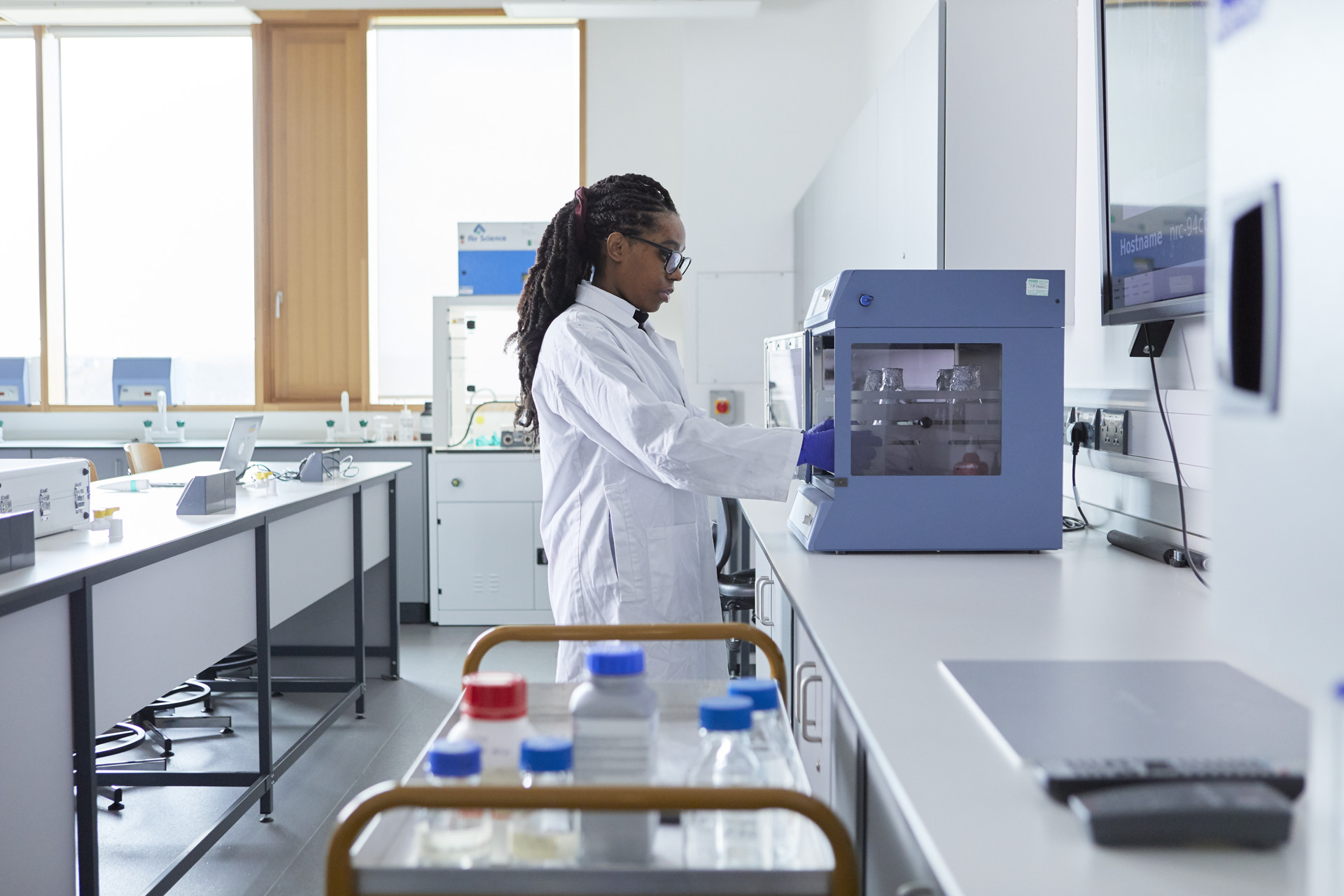
Student using the laboratory equipment in the science lab in the Creative Hub.
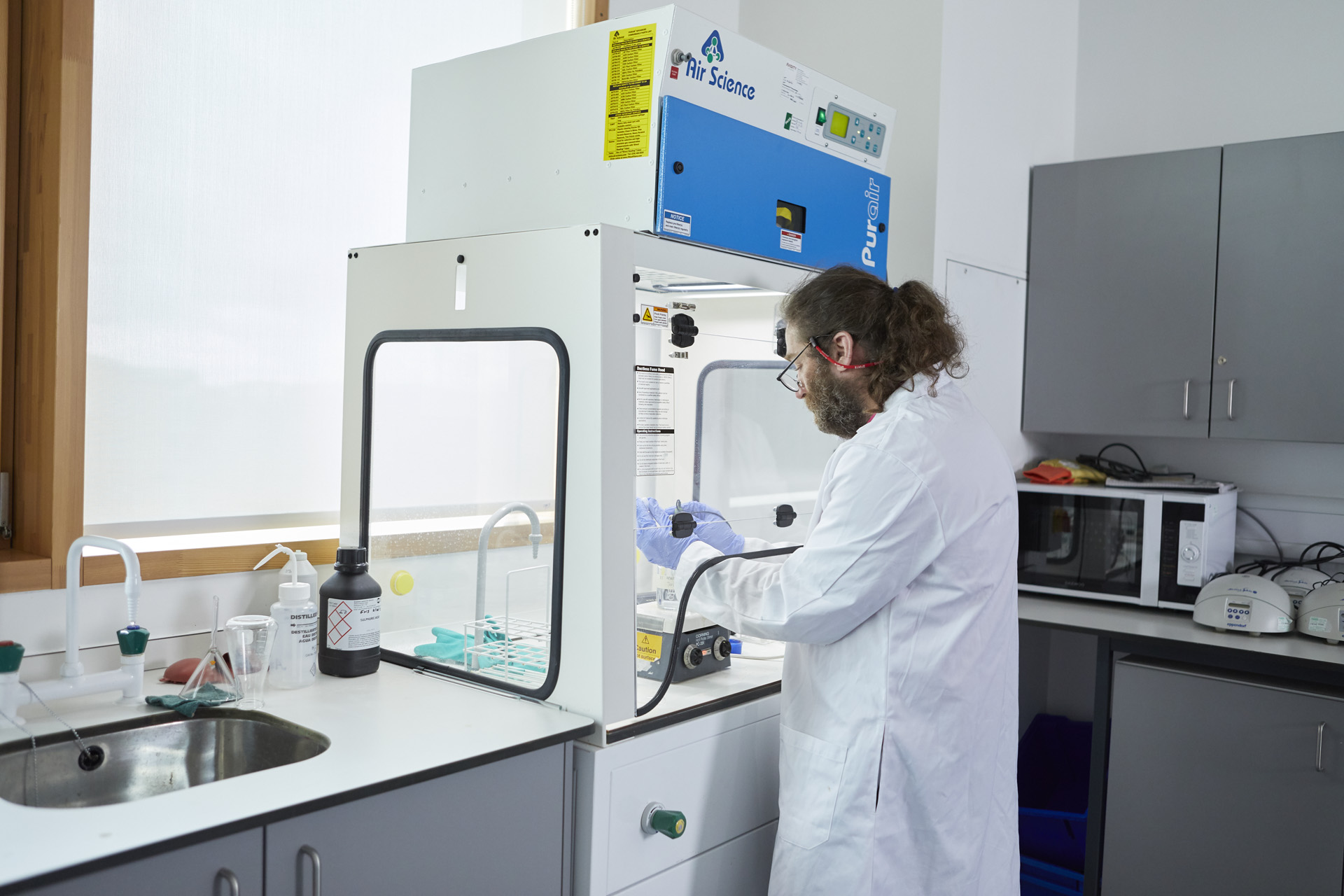
Student using a flame equipment in the science lab facilities at the Creative Hub.
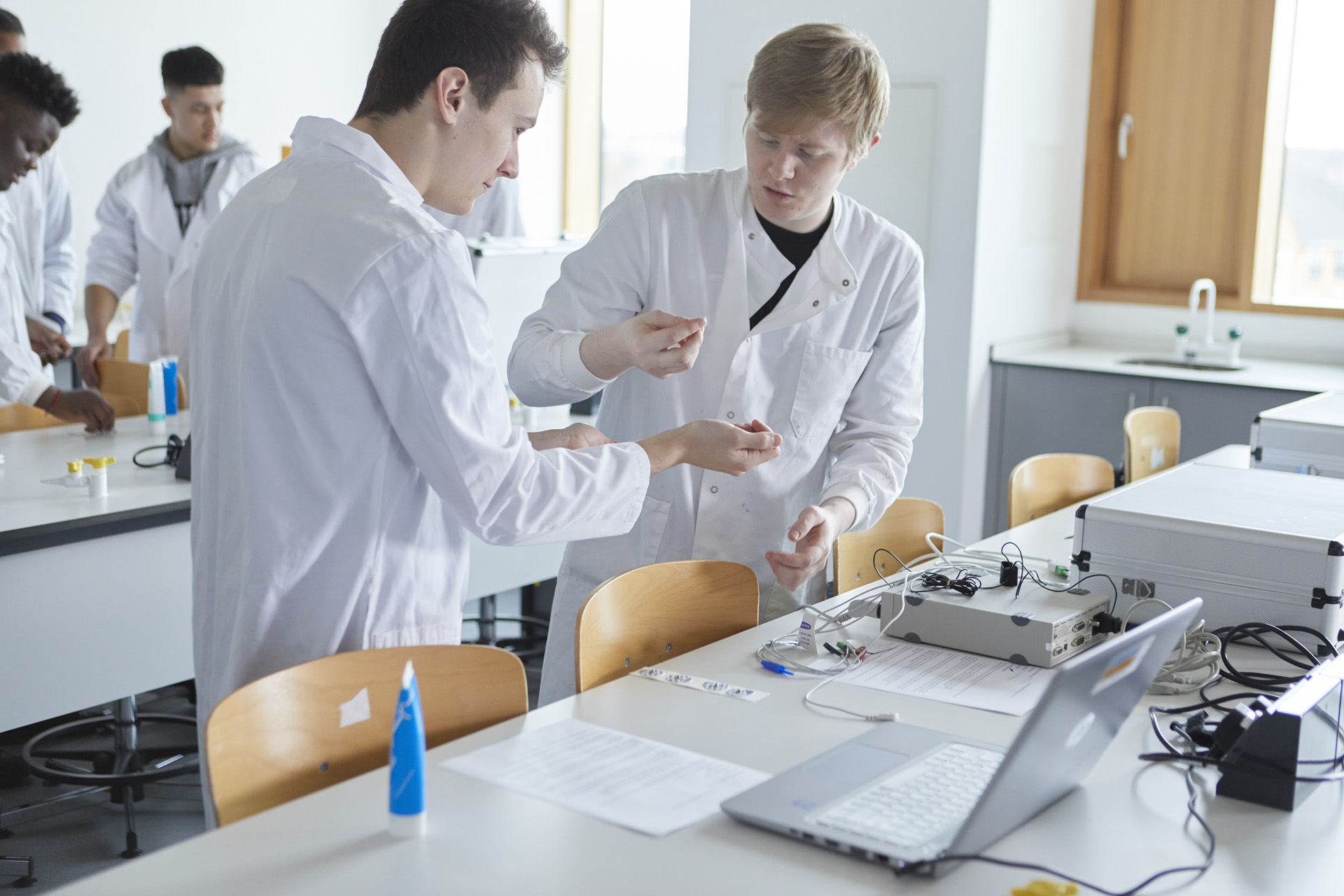
Two students undertaking an experiment in the Biomedical Sciences lab in the Creative Hub, during a seminar.
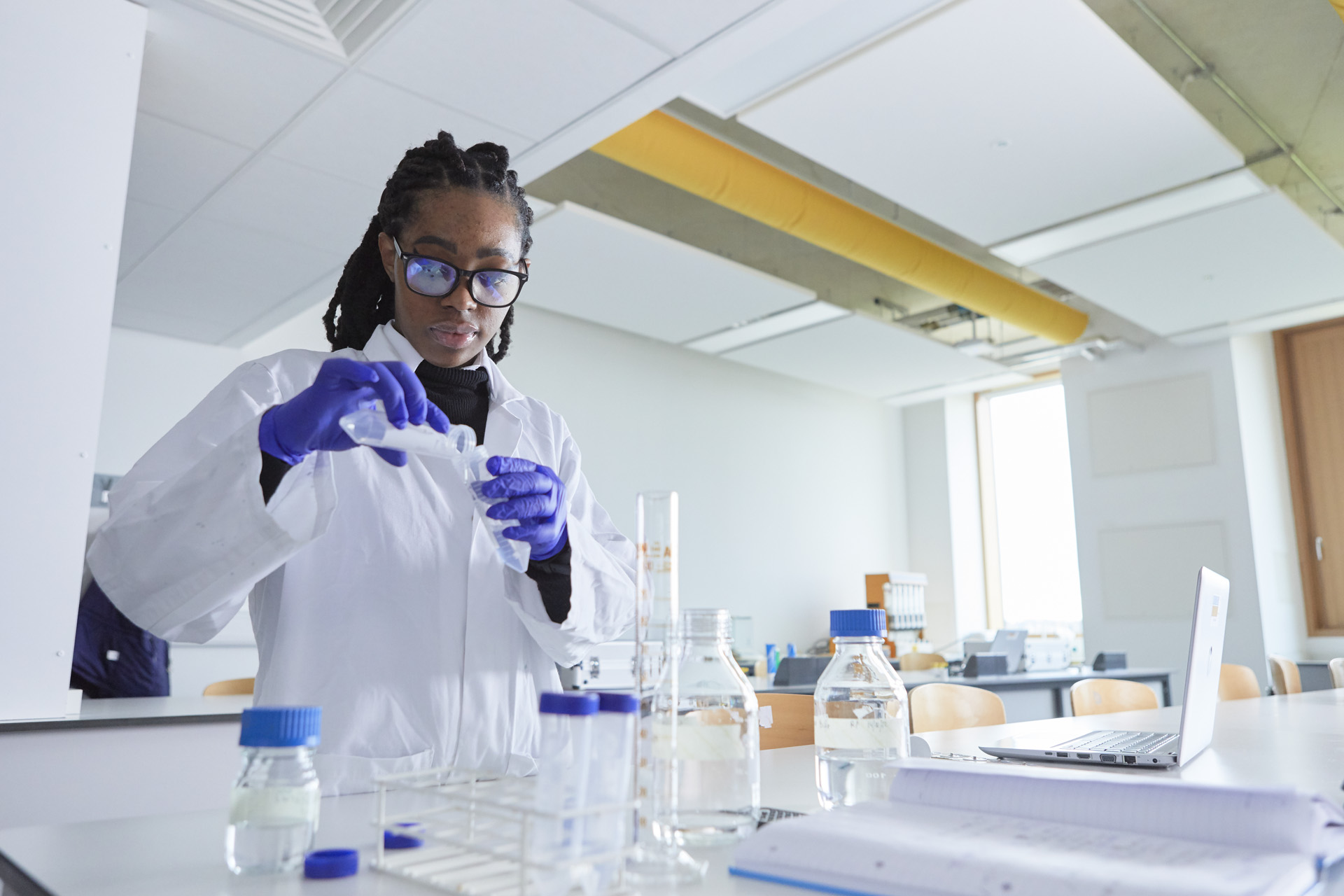
Student undertaking an experiment on a bench in the Biomedical Sciences lab, inside the Creative Hub.

A science group seminar, where students are able to take part hands-on sessions.

Three students at a bench in a Biomedical Sciences lab inside the Creative Hub, during a seminar.
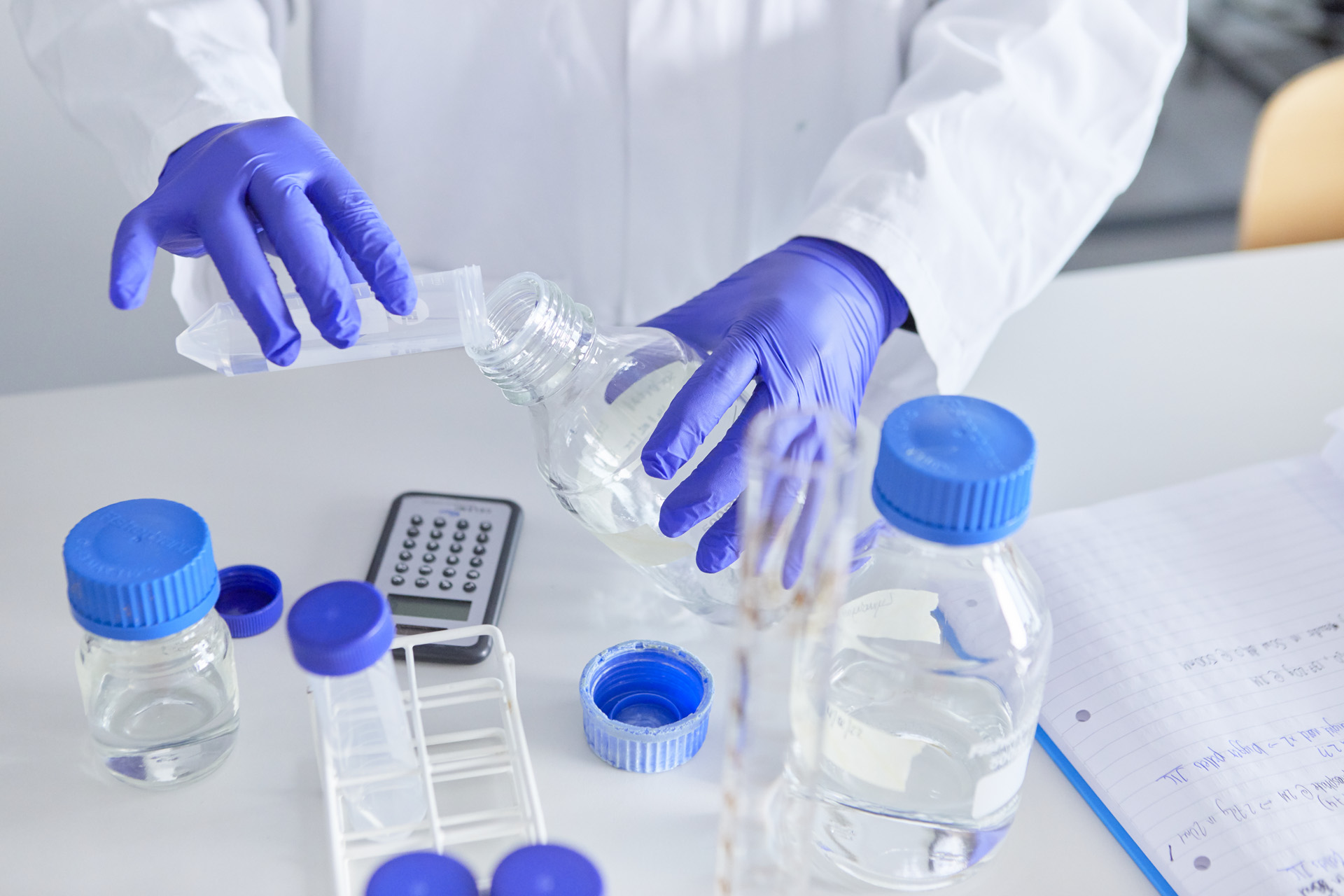
Example of the type of equipment students use within their science classes.

Students using equipment in science class in the Creative Hub Science Labs.

Student using the laboratory equipment in the science lab in the Creative Hub.

Student using a flame equipment in the science lab facilities at the Creative Hub.

Two students undertaking an experiment in the Biomedical Sciences lab in the Creative Hub, during a seminar.

Student undertaking an experiment on a bench in the Biomedical Sciences lab, inside the Creative Hub.
Entry Requirements
A typical offer for the BSC degree in Pharmacology would be:
- BCC at A Level or,
- DMM at BTEC Extended Diploma (in Applied Science, Applied Human Biology or Pharmaceutical Science or similar science subject) or,
- Access to Higher Education: 30 Level 3 Credits at Merit
- Pass (C and above) in T Level Science
- GCSE Maths and English Language required at Grade C/4 or above or equivalent.
-
For A Levels, you are expected to have studied two science A Level subjects (one at Grade C in Chemistry or Biology, and one other in Biology, Chemistry, Human Biology, Maths or Physics), or equivalent qualification.
For more information on how to make an application, please visit our How to Apply page.
For more information on how to apply as an International student, please visit our How to Apply page.
-
Admission to this Pharmacology foundation year course is normally:
- DEE at A Level (applicants are expected to have studied two science A Level subjects (one in Chemistry or Biology, and one other in Biology, Chemistry, Human Biology, Maths or Physics)) or,
- MPP at BTEC Level 3 Extended Diploma (in Applied Science, Applied Human Biology or Pharmaceutical Science or similar science subject) or
- Pass (D or E) at T Level
However, we would also like to hear from you if you have professional or industry experience instead, a range of other qualifications or self-developed subject knowledge that relates to the course you wish to study.
-
All International and EU students applying for a course with the University of Northampton must meet the following minimum English language requirements:
- IELTS 6.0 (or equivalent) with a minimum of 5.5 in all bands
for study at undergraduate level
For information regarding English language requirements at the University, please see our IELTS page.
If you would like information on making an application, please see our How to Apply page.
- IELTS 6.0 (or equivalent) with a minimum of 5.5 in all bands
Upcoming Discovery Days
Discovery Days give you the best experience and insight to courses, people and facilities that interest you. Make your choice easier and come meet us.
Course Content
-
Pharmacologists will be at the forefront of the development and design of next generation medicines for the treatment of diseases of the 21st century. As a student of Pharmacology BSc, you will be preparing to meet the challenges of developing molecules into medicines.
In studying the UON’s pharmacology course, you will gain an in-depth understanding of the principles and biological action of drugs and chemicals, at the molecular, cellular and systems level and their use as medicines for the treatment of diseases.
Our Pharmacology degree has been designed to meet the standards of the British Pharmacological Society’s (BPS) undergraduate core curriculum. Course modules are structured using a variety of methods including lectures, seminars and laboratory practical classes. Our aim is to provide you with opportunities to be actively involved in your learning. This is facilitated by an active blended learning approach which combines face-to-face sessions with integrated online learning, implemented in our Northampton Interactive Learning Environment (NILE). For each 20 credit module you can expect approximately 48 hours of contact time during the academic year.
Accreditation of this BSc Pharmacology degree is being sought from the Royal Society of Biology – the leading professional body for the biological sciences in the United Kingdom.
Please note the modules shown here relate to the academic year 24/25. The modules relating to the academic year 25/26 will be available from June 2025.
-
-
Biochemistry and Cell Biology (20 Credits)
Module code: SLS1013Status: CompulsoryThe purpose of this module is to give level 4 students an introduction to human biochemistry and cell biology. You will study the molecules and chemical processes that occur in living organisms, and explore the structure and function of cells, their components, and their interactions with the external environment.
-
Introduction to Microbiology (20 Credits)
Module code: SLS1019Status: CompulsoryThe purpose of this module is to provide an insight into how invading organisms can cause disease and relate human world health issues to populations. This module allows students to develop a broad understanding of infectious disease across the globe and the biology of the the causative agents, as well as examining intrinsic & extrinsic strategies to combat microbial pathogens.
-
Genetics and Molecular biology (20 Credits)
Module code: SLS1020Status: CompulsoryThe purpose of this module is to give you an introduction to genetics and molecular biology. You will learn about the fundamental mechanisms of DNA replication, transcription and translation. You will also explore how the tools of molecular biology, including cloning and PCR, allow the manipulation and understanding of genes and the proteins they encode.
-
Fundamentals of Immunology (20 Credits)
Module code: SLS1021Status: CompulsoryThe purpose of this module is to introduce the student to the basic concepts in immunology and to appreciate the clinical relevance. The syllabus will cover cell types associated with different types of immune responses including B and T lymphocytes and their various roles including antibody generation and fighting pathogens.
-
Anatomy and Physiology (20 Credits)
Module code: SLS1035Status: CompulsoryThe purpose of this module is to provide an appropriate level of understanding of the anatomy and to introduce the student to the basic principles and concepts of physiology. Enabling an understanding of different body systems and how they are integrated to produce homeostasis.The focus will be on human anatomy & physiology and will study the form and functions of the major body systems.
-
Foundations of Chemistry (20 Credits)
Module code: SLS1051Status: CompulsoryThe purpose of this module is to provide level 4 students with an introduction to the fundamental chemical principles necessary to understand the chemistry of biological systems. The module will study organic, inorganic and physical chemistry. It will entail studying atomic and molecular structure and chemical interactions leading to a description of the reactivity of the function groups and reaction mechanisms that are found in biological systems and the fundamental forces that underpin chemical kinetics.
-
Biochemistry and Cell Biology (20 Credits)
-
-
Genes and Genomics (20 Credits)
Module code: SLS2001Status: DesignateThe sequencing of the human genome has enhanced our understanding of the genetic basis of disease and led to the emerging fields of both bioinformatics and genomics. This module will extend the students' appreciation of molecular biology learnt in SLS1020 while introducing students to both genomics and bioinformatics. The focus will be on applications of genomics to human disease, forensics and sports science.
-
Bioscience Research Methods (20 Credits)
Module code: SLS2013Status: CompulsoryThe purpose of this module is to develop knowledge and understanding of quantitative research methods, analysis and research skills within the context of human bioscience. The emphasis will be upon understanding and experiencing the entire research process from conception to presentation and developing the critical skills necessary to undertake an independent research project.
-
Processes of Life: Biochemistry (20 Credits)
Module code: SLS2016Status: DesignateThe purpose of this module is to give the student the opportunity to investigate the mechanisms underlying metabolic activities and physiological processes. By achieving the learning outcomes, this module aims to develop an understanding of biochemical regulation of the processes of life. Students will work toward securing the basic foundation needed to study all areas of biology, preparing them to undertake their independent research projects.
-
Cellular Pathology (20 Credits)
Module code: SLS2041Status: DesignateThe purpose of this module is to introduce the student to the highly dynamic area of pathology exploring mechanisms of disease in cells (cytopathology) and tissues (histopathology). Students will develop a clear understanding of how disease, such as cancer, inflammation, etc., is diagnosed using changes observed and information at the tissue, cellular and molecular level. Current and novel strategies for diagnosing disease will also be explored.
-
Principles of Pharmacology (20 Credits)
Module code: SLS2055Status: CompulsoryThe purpose of this module is to provide students with a grounding in pharmacology that will focus on basic mechanisms of drug action, e.g. how drugs interact with the body and understand how drug action is measured quantitatively.
-
Bioinformatics (20 Credits)
Module code: SLS2057Status: DesignateThe purpose of this module is to introduce students to bioinformatics and equip them with the ability to apply computational skills, knowledge and methods to analyse and interpret complex biological data.
-
Physiology 2 (20 Credits)
Module code: SLS2058Status: CompulsoryThis module emphasises the integration of sensory input and effector output that play a role in specific human behaviour. It also considers a range of human behaviours such as movement, emotion, sleep, addiction and stress, from a biological viewpoint. This module aims to help students develop skills in preparation for more independent learning in level six. To help students understand which biological systems are responsible for human behaviours and to allow students to develop and understand how body systems integrate to maintain homeostasis.
-
Systems Pharmacology and Therapeutics (20 Credits)
Module code: SLS2059Status: CompulsoryThe purpose of this module is to build on the knowledge gained in SLS2055 Principles of pharmacology. It will look at the action of drugs on the functions and diseases of different body systems; such as the cardiovascular system or the musculoskeletal system.It will be developing the knowledge of different classes of drugs used to treat the disease of modern society and look at aspects of polypharmacy and the ethical use of drugs in society.
-
Genes and Genomics (20 Credits)
-
-
Integrated Medical Genetics (20 Credits)
Module code: SLS3002Status: DesignateThe purpose of this module is to build on the understanding of material learnt in SLS2001. This will enable students to develop a deeper understanding of how genes behave both at the level of the individual and in populations. There will be an emphasis on linkage, association, and interaction of genes with other genes and the environment, and a discussion of how these factors influence complex traits and diseases.
-
Gene Regulation (20 Credits)
Module code: SLS3024Status: DesignateThe purpose of this module is to explore the complex mechanisms of genetic regulation in both eukaryotic and prokaryotic organisms and to gain an understanding of how changes in gene expression and RNA processing can impact phenotypes or behaviours. The module aims to develop students? ability to critically interpret and use research data and publications to form conclusions about gene regulation and RNA processing.
-
Neuro-Pharmacology (20 Credits)
Module code: SLS3043Status: CompulsoryThe purpose of this module is to extend the knowledge gained at level 5 in the principles of Pharmacology SLS2055 and SLS2059. It will study important neurotransmitter in the nervous system their receptors, structure, function and signalling pathways. This module will study the role of neurotransmitters in brain disorders and will describe the symptoms and pharmacological treatment of a subset of psychiatric conditions, such as schizophrenia. The possible underlying causes of these disorders, and advances in therapy, will be discussed in the light of the most recent research in these topics.
-
Molecular Pharmacology (20 Credits)
Module code: SLS3044Status: CompulsoryThe purpose of this module is to study (in detail), the biochemical and biophysical characteristics of drugs at the molecular level; their interactions with biological macromolecules and cellular functions.
-
Toxicology (20 Credits)
Module code: SLS3045Status: DesignateThe purpose of this module is to provide students with an overview of how the human body is systematically affected by toxic substances.The concept of selective toxicity and the mechanisms by which drugs achieve selectively toxic effects through exploitation of comparative distribution, comparative biochemistry and comparative cytology and how some chemicals have potential as chemotherapeutic agents. It will also study the techniques used in toxicity testing and the regulations for the testing of household products and saftey at work.
-
Drug Discovery & Development (20 Credits)
Module code: SLS3046Status: DesignateThe purpose of this module is to provide an overview of the drug discovery and development processes. To gain an appreciation of the preclinical and clinical stages of a development project. As well as the stages required by regulatory bodies to gain approval to market a new medicine.
-
Pharmacology Dissertation (40 Credits)
Module code: SLS4014Status: CompulsoryThe purpose of this module is to formulate a research question and undertake an independent research project in a chosen topic area of Pharmacology.
-
Integrated Medical Genetics (20 Credits)
-
-
At the University of Northampton, everything we do, from funded trips to paid internships, is to give you everything you need to make a difference when you leave.
If you join this full time BSc Pharmacology degree at Northampton, you will receive a laptop when your course begins*. The laptops are built to a bespoke custom specification ideal for use in the seminar room, collaborative group work or studying at home.
Whatever your ambitions, we’re here to help you to achieve them. We’ll support you to identify the skills you’re learning during your pharmacology course, find your strengths and secure practical experience so that when it comes to applying for jobs or further study you’ll feel confident in standing out from the crowd. We’ve created the Northampton Employment Promise because we are so confident that if you focus on your studies and complete one of our awards you’ll be highly employable by the time you graduate. Putting you in a great position to secure employment or continue your studies.
To check out the full list of perks, visit our Student Perks page or dedicated International Perks page.
*UK fee payers only (see Terms and Conditions for further details).
-
The Integrated Foundation Year (IFY) offers a new and exciting route into studying for pharmacology courses, attracting ambitious and driven students who are willing to learn and advance.
If you have non-standard qualifications or do not quite meet the admissions requirements we can offer you a fantastic opportunity to study a four year programme which includes an Integrated Foundation Year. The Integrated Foundation Year will help you develop the theoretical/practical and academic skills you need, in order to successfully progress to the full award.
Our four-year courses will enable you to successfully follow the degree pathway of your choice while gaining essential study skills. The foundation year of your chosen degree will be studied on a full-time basis and is aimed at supporting the transition to higher education. Years two, three and four are then studied as a standard degree programme.
-
An optional placement year is available for students who have successfully completed their BSc Pharmacology stage 1 and 2 studies. Advice will be given to help find placements. This will give you the opportunity to gain a year‘s extra work-based learning experience in a science related placement, spent either in the UK or abroad.
-
How will I be taught on the BSc Pharmacology degree?
We aim to provide an environment that maximises engagement, involvement and enjoyment in your studies. You will participate in a variety of activities that support and enhance your learning. This will include traditional face to face lessons, laboratory practicals, tutorials and online sessions through our virtual classroom.
How many hours per week of teaching/ personal tutoring?
Throughout the Pharmacology degree at UON, you can expect a typical week to have between 12-14 hours of taught content and an additional hour available with your designated tutor
How will I be assessed on the degree in Pharmacology?
In each of the modules you take each semester, you will typically have 2 assessments per module. These will be through coursework and formal examinations throughout your study. An estimate of the different forms of assessment is as follows:
- Essays 30%
- Examinations 20%
- Practical work 25%
- Presentations, posters 20%
- Time constrained tests 5%
Worried about student finance?
Get all the info you need ahead of time, before you can apply for funding in Spring on our fees and funding pages.
Fees and Funding
2025/26 Tuition Fees
- UK Full Time: £9,535
- UK Part Time: £1,585 per 20 credit module
- UK Integrated Foundation Year: £9,535 for the foundation year; thereafter standard fees apply
- International Full Time: £15,700
- International Integrated Foundation Year: £15,700 for the foundation year; thereafter standard fees apply
Fees quoted relate to study Pharmacology BSc in the Academic Year 2025/26 only and may be subject to inflationary increases in future years. UON will adjust UK fees annually in line with Government Policy.
-
There are no additional costs for this course for students beginning their studies in September 2025. Should this change, applicants and students will be contacted by the university with details of the costs.
-
For information on the scholarships available to you, please see our scholarships page.
For more information about possible funding options, please visit our Fees and Funding pages.
-
Fees quoted relate to study Pharmacology BSc in the Academic Year 24/25 only and may be subject to inflationary increases in future years.
- UK – Full Time: £9,250
- UK – Part Time: £1,540 per 20 credit module
- UK – Integrated Foundation Year: £9,250
- International – Full Time: £15,200
- International – Integrated Foundation Year: £15,200
Careers and Employability
A pharmacology degree is an excellent foundation for a wide range of careers. Our graduates will be equipped with a variety of transferable skills that employers are seeking. These include gathering, analysis and interpretation of data, communication both orally and in writing, presentation skills and teamworking.
For example, on the British Pharmacological Society website careers in pharmacology pages there are details of a range of opportunities available to graduates. These include jobs in:
- Pharmaceutical and biotechnology industry
- Clinical Pharmacology
- Science communication and public engagement
- Patent Law and technology transfer
- Teaching
- Lecturing and training
- Monitoring and licensing of medicines
- Regulatory affairs
- Research Management and coordination
- Managing research funding
- Finance and business
Pharmacology graduates from the University of Northampton are well-qualified to undertake a wide range of careers or training for a higher degree such as an MSc or PhD – with graduates continuing to study in medicine, dentistry and other related fields.
Facilities
Related Courses
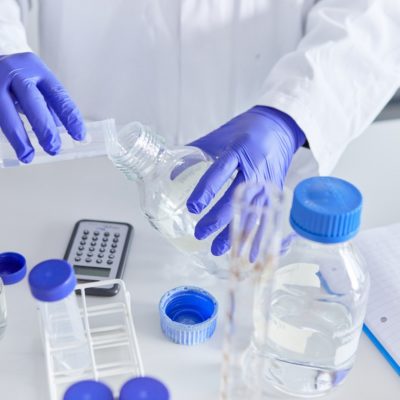
Biomedical Science BSc (Hons)
Our Biomedical Science degree is designed to equip you with a fundamental understanding of how science...

Biological Sciences BSc (Hons)
Biological Sciences BSc (Hons) develops your scientific skills and knowledge to understand the interaction between biological...
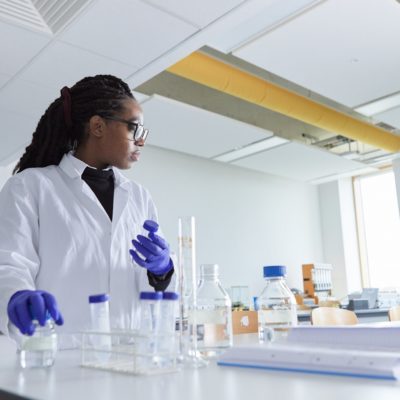
Biochemistry BSc (Hons)
Biochemistry BSc (Hons) underpins the very nature of our existence and acquiring skills and knowledge of...
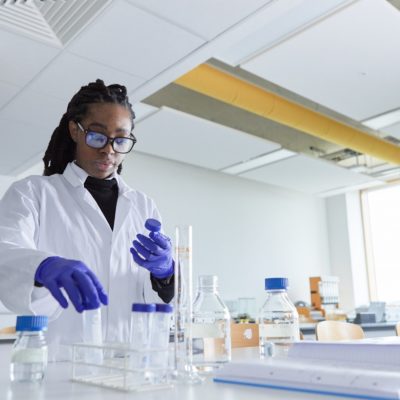
Molecular Medicine MSc
Our Molecular Medicine masters enables you to focus on molecular medicine, genetics and genomics.







